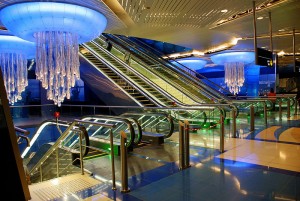Source: www.meed.com
Dubai’s financial position continues to be of concern and agencies are seeking fresh sources of funding.

It has been a bad year for Dubai. As the property market crashed at the end of 2008, the emirate’s real estate developers could no longer pay their bills and, by the start of this year, almost every consultant, contractor and supplier in town was owed money.
By April, the only good news was that Dubai government clients, such as Dubai Electricity & Water Authority (Dewa), Dubai Municipality, the Department of Civil Aviation and the Roads & Transport Authority (RTA), had escaped the payment crisis. The Department of Finance said these organisations would receive direct support from the government and continue to provide the construction sector with work.
But, as 2010 approaches, the emirate’s financial position continues to be of concern and government agencies are searching for novel ways out of their difficulties.
The RTA for example has now asked contractors to fund their own work on the metro and other projects. It is one of the emirate’s biggest providers of work. Since it was formed in 2005, it has spent -billions of dollars upgrading the emirate’s transport infrastructure. It has hundreds of construction sites all over Dubai, with contractors building metros, trams, ferry stations, roads, tunnels, and bridges.
But most of them are half-built and unlike the offshore islands and schemes for new cities in the desert that were abandoned, most of these transport projects must be completed. The RTA and the companies building its projects must now find funding from other sources such as foreign governments or the private -sector.
If it is successful in this, Dubai will – like many other countries – begin paying for infrastructure using long-term funding. If it fails, Dubai will need more financial support from the -federal government and its oil-rich neighbour, Abu Dhabi.



















